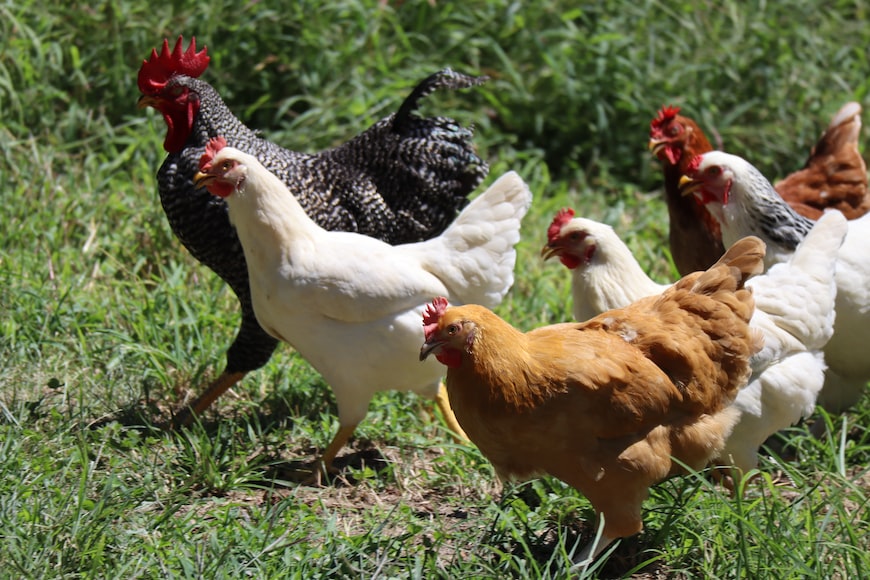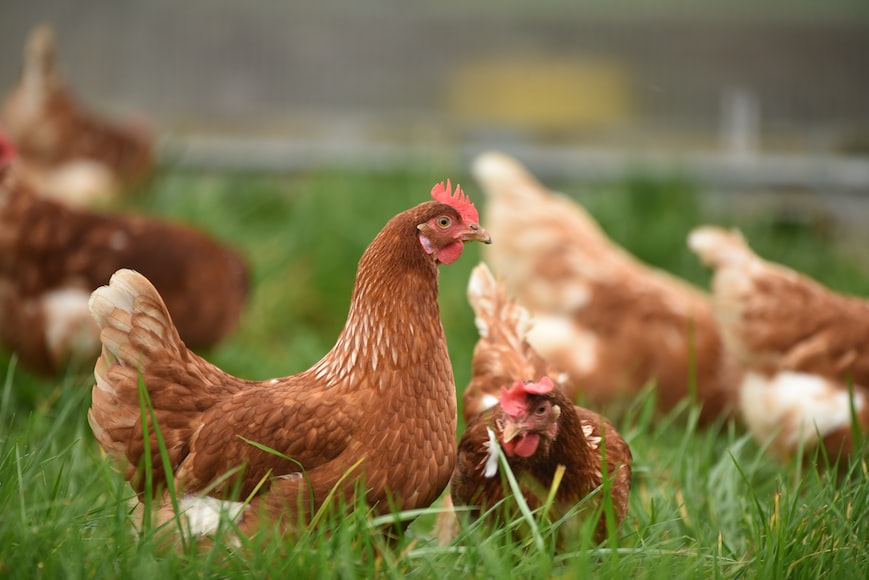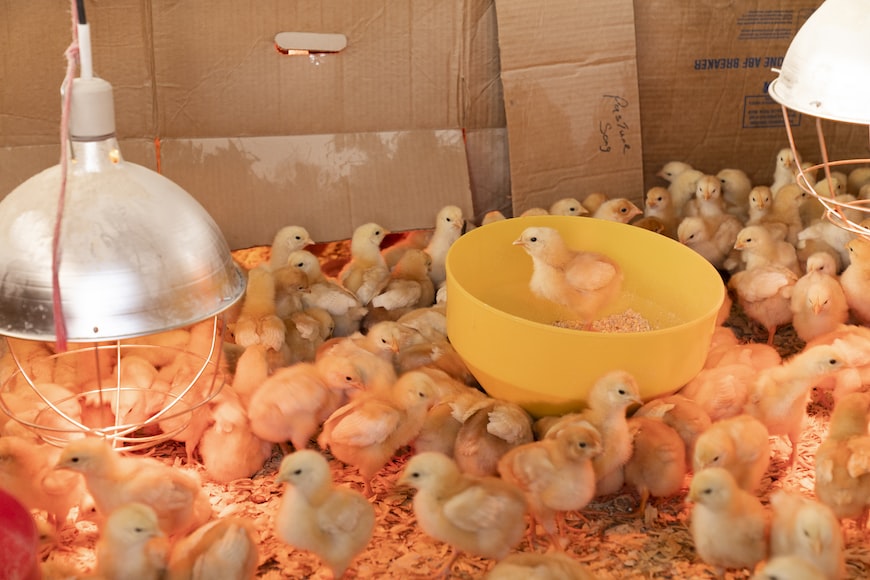What is a young male chicken called? In the vast realm of domesticated birds, there existed a captivating species known as Gallus domesticus - commonly referred to as chickens. These magnificent creatures featured a captivating range of colors, patterns, and sizes, with an astonishing array of over 150 different breeds.
But have you ever pondered where these intriguing beings come from? Legend has it that chickens trace their genealogy back to the Red Junglefowl, a wild and lively bird who roamed the countries of India and Southeast Asia. Surprisingly, despite their alteration through domestication, both chickens and their wild forebears belong to the same biological species.
Throughout history, chickens have become an indispensable part of human society, serving a multitude of purposes. These versatile creatures have been cherished as beloved pets, selectively bred for specific traits, relied upon for their abundant egg production, and, ultimately, consumed as a delectable food source.
The diverse range of chicken breeds only adds to the tapestry of their uses, captivating the hearts of people worldwide and inspiring a global phenomenon of chicken farming. Although the Red Junglefowl is commonly associated with the ancestry of chickens, whispers of a more intricate evolutionary history have emerged.
There are intriguing suggestions that other species of jungle fowl, such as the elusive gray jungle fowl from the southern lands of India (known scientifically as G. sonneratii), played a significant role in shaping the genetic makeup of these captivating creatures. This hints at a more complex evolutionary history.
Regarding the chicken's scientific classification, there is ongoing debate among taxonomists and ornithologists. While some consider the chicken as a domesticated form of the wild Red Junglefowl (classified as G. gallus domesticus), others classify it as a subspecies of the Red Junglefowl.
The U.S. Department of Agriculture, for instance, categorizes the chicken as G. domesticus. Now, imagine yourself wandering through the enchanting world of agriculture, where chickens hold a pivotal role. Whether you are an aspiring poultry enthusiast or a seasoned farmer, understanding the peculiar terminology associated with different stages and genders of chickens is of paramount importance.
Chickens are fascinating creatures that play an essential role in the world of agriculture. Understanding the terminology associated with different stages and genders of chickens is crucial for any poultry enthusiast or farmer, which is why in this blog post, we will explore the various names given to young male chicken and shed light on the intriguing world of poultry terminology.
People Also Read: Unveiling the Beauty of Rainbow Chicken Breeds: A Colorful Guide to Unique Poultry

What is a Young Male Chicken Called?
A young male chicken is widely referred to as a cockerel. The term "cockerel" specifically denotes a juvenile male chicken that has not yet reached sexual maturity. These young males display certain characteristics that differentiate them from mature roosters, such as smaller size, developing combs and wattles, and limited crowing abilities. As they continue to grow and mature, cockerels eventually transform into fully grown roosters, exhibiting all the physical and behavioral traits associated with adult male chickens.
What is a Female Chicken Called?
A female chicken is commonly known as a hen. Hens are vital contributors to the egg production industry, providing us with the nutritious and delicious eggs we enjoy. They possess unique characteristics and are distinguishable from roosters by their distinctive plumage and reproductive system.
What is a Group of Chickens Called?
A group of chickens is flock. Flocks typically consist of various chickens, including both hens and roosters, and they often exhibit social behavior within their group. Flocks provide a sense of safety, companionship, and hierarchy among the chickens, creating a fascinating dynamic within the poultry community.

What is a Baby Rooster Called?
A baby rooster, also known as a young male chicken, has a specific name: cockerel. Cockerels are juvenile male chickens that have not yet reached sexual maturity. They display distinctive characteristics such as a smaller size, developing combs and wattles, and the absence of significant crowing abilities.
People Also Read: What Should Be Inside Your Chicken Coop? Essential Elements for a Functional and Productive Coop
What is a Mature Male Chicken Called?
When a young male chicken reaches sexual maturity, it becomes a mature male chicken. The commonly used term for a mature male chicken is a rooster. Roosters are easily recognizable within the flock due to their vibrant and often flamboyant plumage, pronounced combs and wattles, and their crowing ability, which they use to establish their dominance and protect the flock.
What's a Mature Female Chicken Called?
A mature female chicken, as mentioned earlier, is called a hen. Once hens reach maturity, they become capable of laying eggs, an essential aspect of chicken farming. Hens possess a less extravagant appearance compared to roosters, with more subdued plumage and smaller combs and wattles. Their primary purpose is to contribute to the growth of the flock by producing eggs.
What's a Baby Hen Called?
Similar to baby roosters, baby hens also have a distinct name. A young female chicken is widely known as a pullet. Pullet is the term used to describe a juvenile female chicken that has not yet reached sexual maturity. As they grow, pullets undergo physical changes, including the development of reproductive organs, leading to their transition into mature hens.

People Also Read: Can Chickens Eat Bread? A Comprehensive Guide for Poultry Owners
Frequently Asked Questions
How many chicken breeds are there?
There are over 150 different breeds of chickens, each with its own unique characteristics, colors, patterns, and sizes.
What is the evolutionary history of chickens?
Chickens have evolved from the wild Red Junglefowl found in India and Southeast Asia. However, there is evidence suggesting that other species of jungle fowl, such as the gray jungle fowl, also played a role in shaping the chicken's genetic makeup.
What is the role of chickens in agriculture?
Chickens serve multiple purposes in agriculture. They can be kept as pets, bred for specific traits, utilized for egg production, and ultimately consumed as a food source.
How do chickens contribute to the egg production industry?
Hens, the mature female chickens, are the primary contributors to the egg production industry. They lay eggs, providing us with nutritious and delicious eggs.
What is the social behavior of chickens within a flock?
Chickens within a flock exhibit social behavior, including establishing a hierarchy, providing a sense of safety and companionship, and engaging in various interactions with other members of the flock.
What is the difference between a cockerel and a rooster?
A cockerel refers to a young male chicken that has not yet reached sexual maturity, while a rooster is a mature male chicken that exhibits all the physical and behavioral traits associated with adult male chickens.
How can I care for my chickens as they grow?
Providing appropriate care for chickens includes providing them with proper nutrition, a clean and comfortable living environment, regular health check-ups, and protecting them from predators.
People Also Read: Color Your Egg Basket: Discover Chicken Breeds Lay Beautiful Blue Eggs!
Conclusion
At Poultry Farm Guide, we recognize the importance of keeping people and farmers well-informed about chickens and poultry farming. Understanding the different names used to describe young male chicken and their counterparts is vital in the world of poultry farming. From hens to roosters, each gender and stage of development serves a unique purpose within the flock.
By delving into the diverse terminology associated with chickens, we gain a deeper appreciation for these remarkable poultry animals and their contributions to agriculture. Remember to provide appropriate care and attention to your chickens as they grow, and enjoy the journey of raising these fascinating birds in your poultry endeavors.
Need a website or other IT services? Visit our website!
Share on Twitter Share on Facebook
Comments
There are currently no comments
New Comment